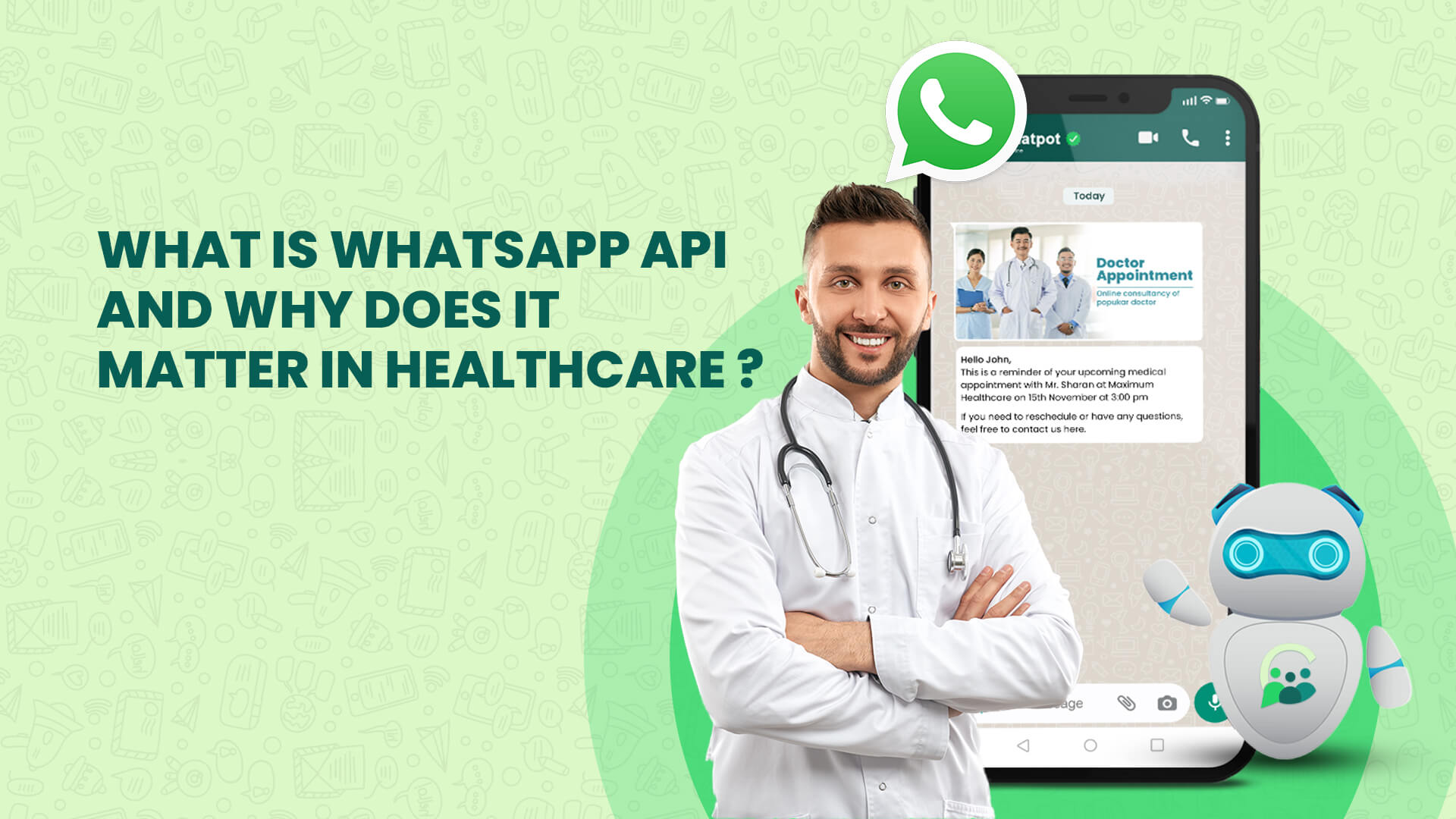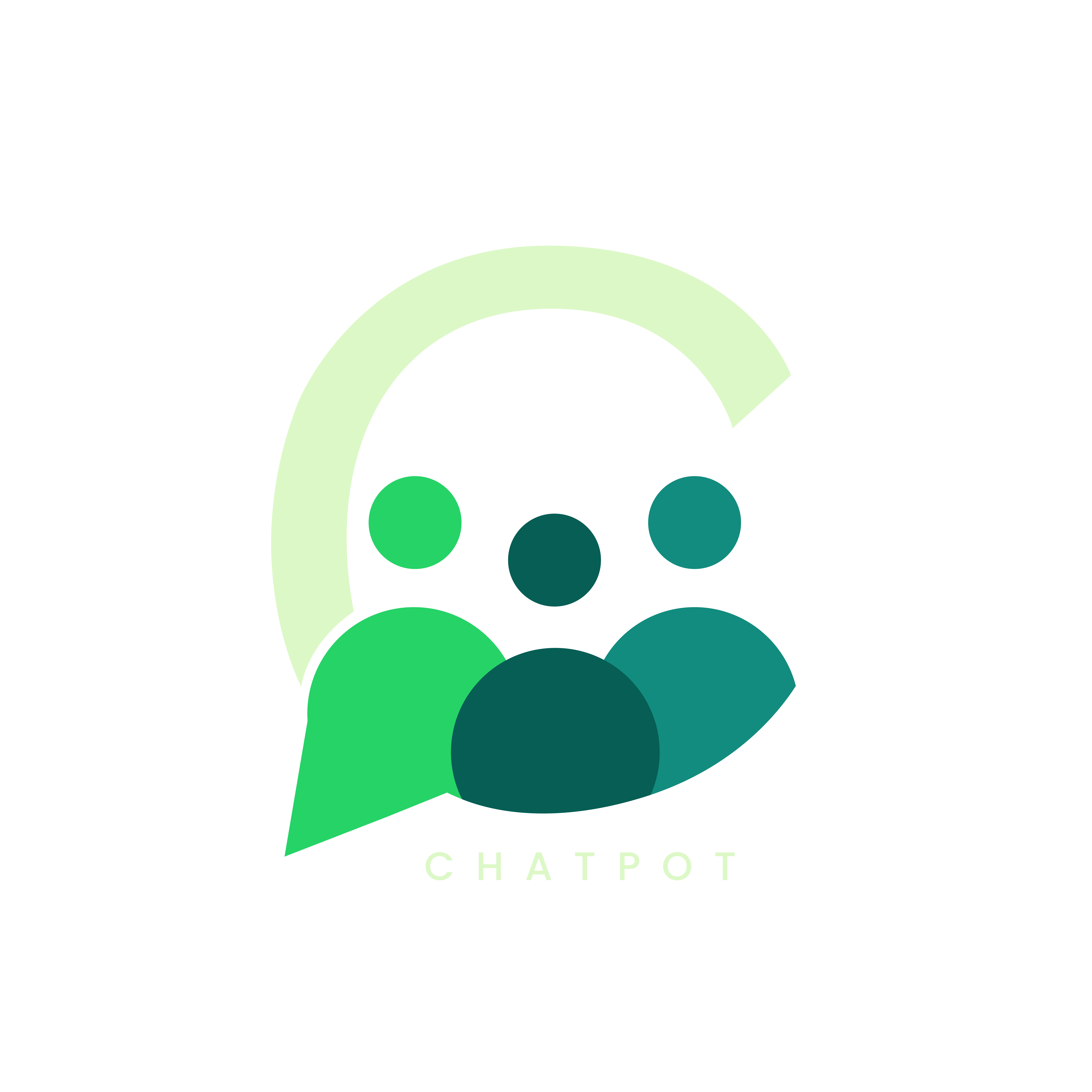
- Posted on
- chatpot
In today’s fast-paced digital world, healthcare organizations are constantly seeking ways to improve communication, streamline processes, and provide better patient care. One of the tools gaining prominence in this effort is the WhatsApp API. While most of us are familiar with WhatsApp as a messaging app for personal communication, its API version is transforming how healthcare providers engage with patients and manage their operations.
What is WhatsApp API?
The WhatsApp Business API is designed for organizations to communicate with their customers or users in a scalable and secure manner. Unlike the personal WhatsApp app, which is limited to one-on-one chats, the API allows healthcare providers to automate messages, integrate with customer relationship management (CRM) systems, and manage large volumes of conversations. This capability opens the door for more efficient and personalized communication with patients.
How WhatsApp API is Revolutionizing Healthcare
Here are some keyways the WhatsApp API is making a difference in the healthcare sector:
1. Improved Patient Communication
Communication is the backbone of healthcare services. WhatsApp API enables healthcare providers to send personalized messages for appointment reminders, follow-up care, medication instructions, and more. The app’s wide reach ensures that messages are delivered instantly to patients, no matter where they are, making it a convenient option for both patients and providers.
Imagine a patient receiving a reminder about their upcoming appointment, or a follow-up message with care instructions after surgery, all in the familiar WhatsApp interface they use daily. This seamless communication improves patient engagement and adherence to treatment.
2. Telemedicine and Remote Consultations
With the rise of telemedicine, the WhatsApp API offers a familiar and secure platform for remote consultations. Patients can interact with their doctors through text, voice, or video calls, minimizing the need for in-person visits. This is especially helpful in managing chronic conditions, rural healthcare, or during situations like the COVID-19 pandemic.
WhatsApp API also allows healthcare organizations to monitor patient symptoms in real time and provide medical advice or emergency assistance, enhancing the reach of healthcare services beyond physical borders.
3. Enhanced Patient Engagement and Education
Healthcare providers can use the WhatsApp API to share valuable health information with patients. From sharing post-treatment instructions to providing educational content on disease prevention, healthcare providers can engage patients proactively.
Automated responses through WhatsApp chatbots can also help answer common patient questions, reducing the load on healthcare professionals while ensuring patients receive accurate and timely information.
4. Data Privacy and Security
One of the biggest concerns in healthcare is the security of patient information. The WhatsApp API ensures end-to-end encryptions for all communications, providing a secure platform for sharing sensitive health data. For healthcare providers working in regions with strict data privacy regulations, this feature is crucial.
When integrated with healthcare systems, the WhatsApp API can facilitate secure communication with patients in a HIPAA-compliant manner, safeguarding sensitive medical data while still providing convenience and accessibility.
5. Streamlining Administrative Processes
Healthcare organizations can leverage WhatsApp API to automate routine administrative tasks, such as appointment bookings, insurance verification, and feedback collection. By reducing the need for manual intervention, this technology helps free up staff time, allowing healthcare providers to focus more on patient care.
Patients can use WhatsApp to confirm or reschedule appointments, receive updates on test results, or even process payment queries. This automation enhances the overall patient experience by making administrative tasks smoother and more efficient.
Why It Matters
The integration of WhatsApp API into healthcare systems is a game-changer for both patients and providers. Here’s why it matters:
- Accessibility: Patients are already familiar with WhatsApp, making it a user-friendly option for healthcare communication. No need for new apps or complicated setups—just instant communication on a platform they trust.
- Efficiency: Automating routine tasks and communications reduces the workload on healthcare staff, allowing them to focus on providing care. It also ensures that patients receive timely reminders and updates, reducing missed appointments and improving health outcomes.
- Security: In a sector where data privacy is paramount, WhatsApp API’s encryption ensures that sensitive health information is shared securely, complying with healthcare regulations.
- Patient-Centric Care: By offering quick, personalized communication, the WhatsApp API helps build stronger relationships between healthcare providers and patients. This leads to better patient engagement, higher satisfaction rates, and improved adherence to treatment plans.
Conclusion
In an era where technology is rapidly advancing, the WhatsApp API offers a powerful tool for transforming healthcare communication. From simplifying patient engagement to ensuring secure, efficient operations, it’s no wonder that this platform is being embraced by healthcare providers around the world.
As more healthcare organizations adopt digital solutions, the WhatsApp API is poised to play a pivotal role in improving patient care, making healthcare more accessible, and driving operational efficiency.
Maximize the effectiveness of your customer support operations with https://chatpot.io/.

